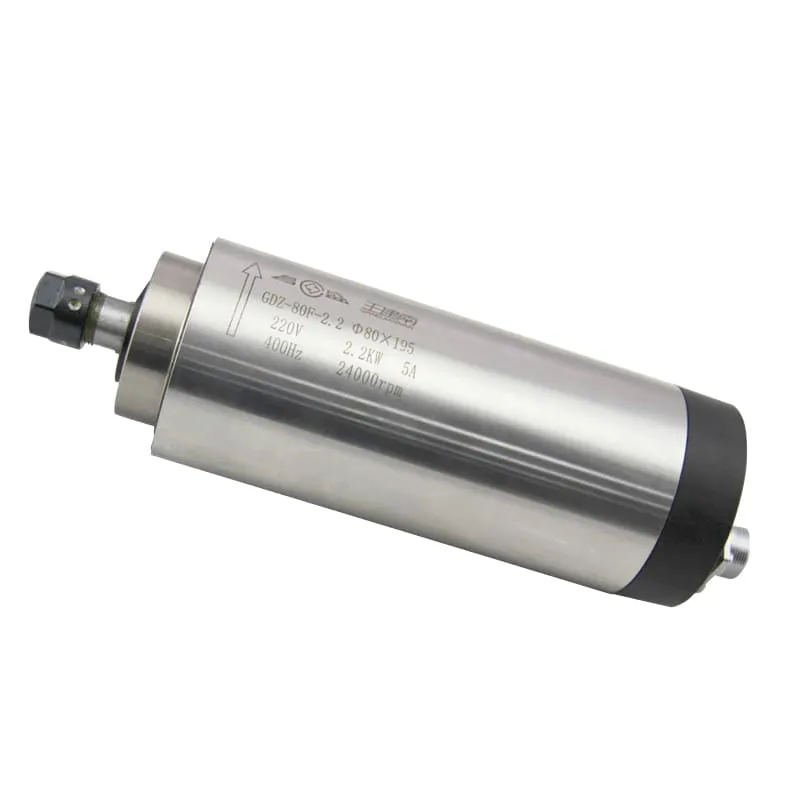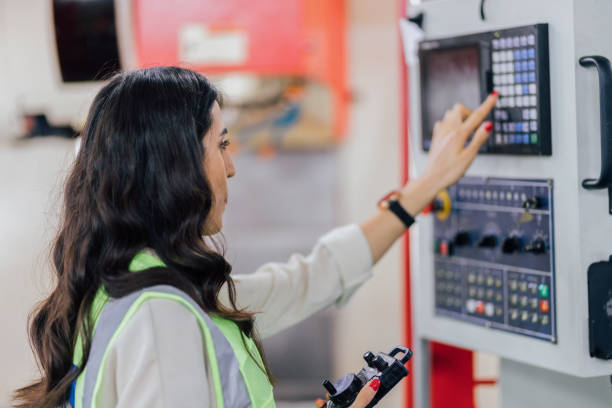How Much Money Does a CNC Programmer Make?
CNC programming is a highly valued skill in the manufacturing industry. It blends technical precision with creative problem-solving to develop precise parts for diverse industries like automotive, aerospace, and medical. One key question for anyone considering a career in CNC programming is: How much does a CNC programmer make? In this article, we will explore various factors affecting a CNC programmer’s salary, typical earning ranges by experience and job role, and the benefits of pursuing this exciting career.
The Role of a CNC Programmer
A CNC programmer is responsible for writing the G-code and M-code that direct CNC machines to cut, shape, and produce parts with high precision. This job requires knowledge of computer-aided design (CAD), computer-aided manufacturing (CAM), and an understanding of the CNC machine’s specific operations.
Responsibilities of a CNC Programmer
- Writing and Editing CNC Programs: Creating or modifying code for CNC machines to produce parts as per specifications.
- Blueprint Interpretation: Reading and interpreting engineering drawings, blueprints, and models.
- Setting Up Machines: Helping set up CNC machines for efficient and correct production.
- Troubleshooting: Identifying errors or malfunctions in code and machine operation, and solving issues quickly.
A CNC programmer typically works with different machines, such as CNC lathes, mills, and routers. Each machine has unique characteristics and programming requirements.
For CNC routers and spindles, equipment such as 1.5KW ER11 Square Air-Cooled Spindle with Flange is crucial to achieving precise cutting and shaping.
Factors Affecting a CNC Programmer’s Salary
The salary of a CNC programmer varies significantly based on multiple factors, such as experience level, geographic location, type of employer, and additional skills and certifications. Let’s break down each of these factors in detail:
1. Experience Level
Experience is one of the most significant determinants of how much a CNC programmer can earn. Salaries typically increase as you gain more hands-on experience:
- Entry-Level (0-2 years): CNC programmers starting out in the industry usually earn between $40,000 – $50,000 per year.
- Mid-Level (3-7 years): With a few years of experience, programmers may see salaries in the range of $50,000 – $65,000 annually.
- Senior Level (8+ years): Experienced CNC programmers can earn between $70,000 – $90,000 or more, especially if they have additional responsibilities such as managing other programmers or maintaining high-value equipment.
A senior CNC programmer may also assume roles like maintenance technician or even manufacturing engineer, which can lead to significant boosts in pay.

2.2KW ER16 Air-Cooled Spindle is an example of equipment used in advanced CNC projects, emphasizing power and precision.
2. Geographic Location
Geographic location plays a major role in determining CNC programmer salaries. Typically, areas with a high cost of living and a demand for skilled machinists pay higher salaries.
- California and New York: Due to their high demand and cost of living, salaries for CNC programmers can exceed $85,000 annually in these states.
- Midwestern States like Wisconsin and Michigan: These states have a significant number of manufacturing hubs. A CNC programmer in Brookfield, WI or Hales Corners, WI can earn between $60,000 – $75,000, depending on experience and role.
For professionals looking to enhance their skillset and increase earning potential, equipment such as 4.5KW ER32 Air-Cooled Spindle can provide higher productivity and precision.
3. Type of Employer
The type of employer significantly impacts how much you earn. CNC programmers can work in various industries such as aerospace, automotive, medical devices, and general manufacturing.
- Aerospace and Automotive: These industries typically pay higher due to the complexity of parts and the need for extreme precision. The average salary can reach $80,000 or more for experienced programmers.
- Small Machine Shops: While salaries in smaller machine shops may be lower (around $40,000 – $55,000), they often provide diverse experiences that can be valuable in the long run.
4. Certifications and Skills
Specific certifications can increase the value of a CNC programmer. Certifications like MasterCAM, SolidWorks, or Fusion 360 are highly regarded by employers, and they often lead to higher wages.
- CAD/CAM Certifications: Skills in CAD/CAM software are critical for designing and programming parts.
- Maintenance Skills: A CNC programmer who also has knowledge of machine maintenance may receive a higher salary due to their added value in keeping machines running smoothly.
Using advanced spindle motors like 3.5KW ER25 Air-Cooled Spindle is key to efficient CNC machining and can help programmers maximize machine capability.
Average Salary for CNC Programmer Job Roles
The salary of a CNC programmer also varies depending on the specific role. Below is an overview of average salaries for different CNC programming roles:
| Job Role | Average Annual Salary |
|---|---|
| Entry-Level CNC Programmer | $45,000 – $50,000 |
| Senior CNC Programmer | $70,000 – $90,000 |
| CNC Machine Operator | $35,000 – $45,000 |
| CNC Machinist | $50,000 – $65,000 |
| Manufacturing Engineer II | $80,000 – $100,000 |
Senior CNC programmers who work on sophisticated tasks such as tool and die setup are often rewarded with higher compensation due to the complexity and precision of their work.
Benefits of a Career in CNC Programming
1. Job Security and Demand
CNC programming offers a high degree of job security due to the increasing automation in manufacturing. Skilled CNC programmers are in high demand, and this trend is expected to continue as more industries adopt Industry 4.0 standards.
- Stable Employment: The shift towards automation and the reliance on precise manufacturing make CNC programmers indispensable.
- Growing Opportunities: Industries such as aerospace, automotive, and consumer goods are expanding, creating numerous opportunities for CNC programmers.
For individuals seeking to advance their careers, the Spindle Motor Shop provides top-quality spindles and tools essential for staying competitive in the field.
2. Opportunities for Advancement
CNC programmers can grow into higher roles such as CNC Programming Supervisor, Manufacturing Engineer, or Production Manager. These roles come with increased responsibilities, higher salaries, and the opportunity to work on advanced projects.
3. Skill Development
Working as a CNC programmer involves constant learning and development. From mastering new CAD/CAM software to understanding advanced cutting techniques, CNC programming is a field that encourages continual improvement.
Skills Needed to Maximize Salary
- Mastery of CNC Programming Languages: Knowledge of G-code and M-code is fundamental. These languages dictate the operation of the CNC machine, including tool movement, spindle speed, and other parameters.
- Software Proficiency: Familiarity with software like MasterCAM or Fusion 360 is essential for designing complex parts and creating toolpaths.
- Attention to Detail: The nature of CNC programming demands a meticulous approach. Precision is key, as even minor errors can lead to costly production issues.
FAQs About CNC Programmer Salaries
1. How much does an entry-level CNC programmer make?
An entry-level CNC programmer typically earns between $40,000 to $50,000 annually, with potential increases as they gain more experience.
2. What is the best industry for CNC programmers in terms of salary?
The aerospace and medical device industries are among the highest-paying sectors, as they require extreme precision and quality.
3. Can CNC programmers increase their salaries over time?
Yes, with experience, additional certifications, and taking on complex projects, CNC programmers can increase their earning potential significantly.
4. Do CNC programmers work with teams?
Yes, CNC programmers often collaborate with machine operators, machinists, and manufacturing engineers to ensure efficient production processes.
5. Are there opportunities for CNC programmers to work internationally?
Yes, CNC programmers are in demand globally, particularly in regions with a strong manufacturing base like Europe, China, and North America. International experience can also lead to higher salaries and exposure to advanced technologies.
Conclusion
The role of a CNC programmer is both rewarding and challenging, with ample opportunities for career growth. Salaries vary depending on experience, geographic location, industry, and the complexity of the work. However, with dedication, skill development, and the right certifications, CNC programmers can significantly increase their earnings over time.
Additionally, working in CNC programming provides a pathway for continuous learning and advancement, allowing individuals to move into senior roles, such as manufacturing engineer or production supervisor. The industry offers high job security and stability, making it an attractive career choice for those interested in precision machining and automated production.
For anyone considering a career in CNC programming or looking to enhance their current role, investing in quality equipment such as advanced spindles can make a significant difference. Visit Spindle Motor Shop for a comprehensive selection of CNC spindles, motors, and other essential tools to support your career in CNC machining.
If you’re ready to take the next step in your career, consider building on your skillset, gaining relevant certifications, and exploring new opportunities in industries that value precision and innovation. CNC programming is a field full of opportunities, with the potential for a fulfilling and lucrative career path.

